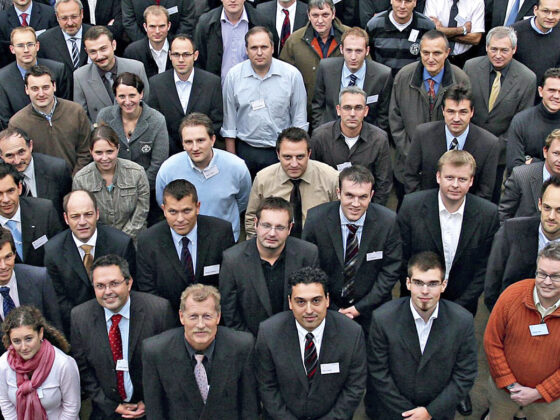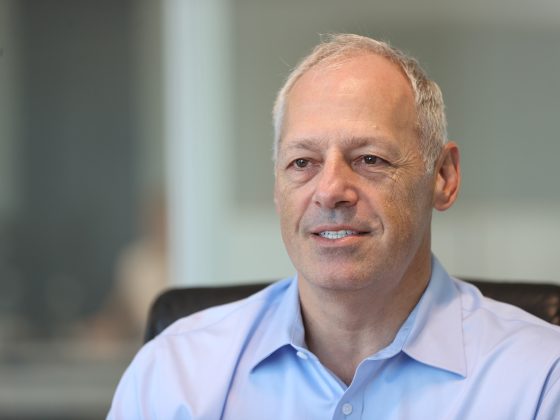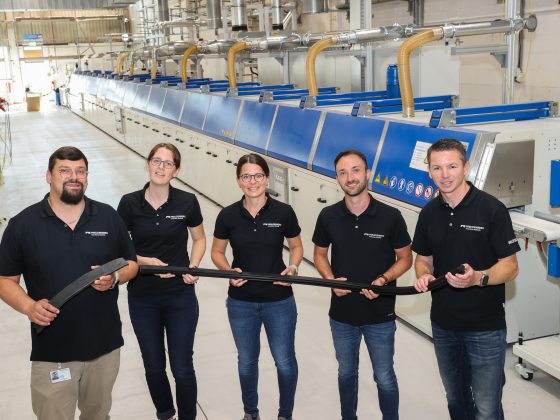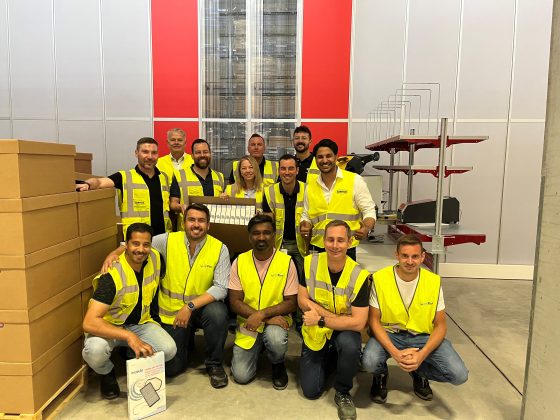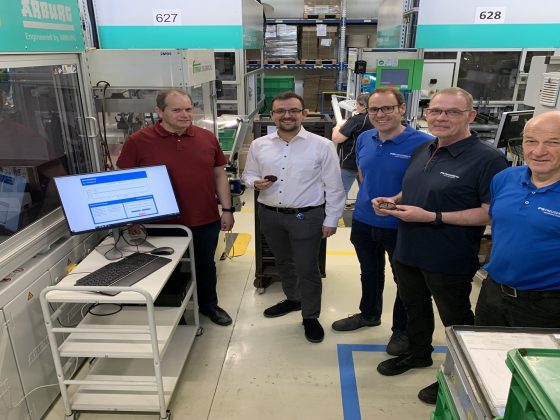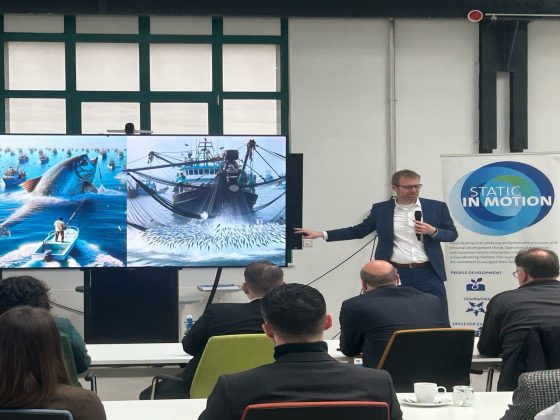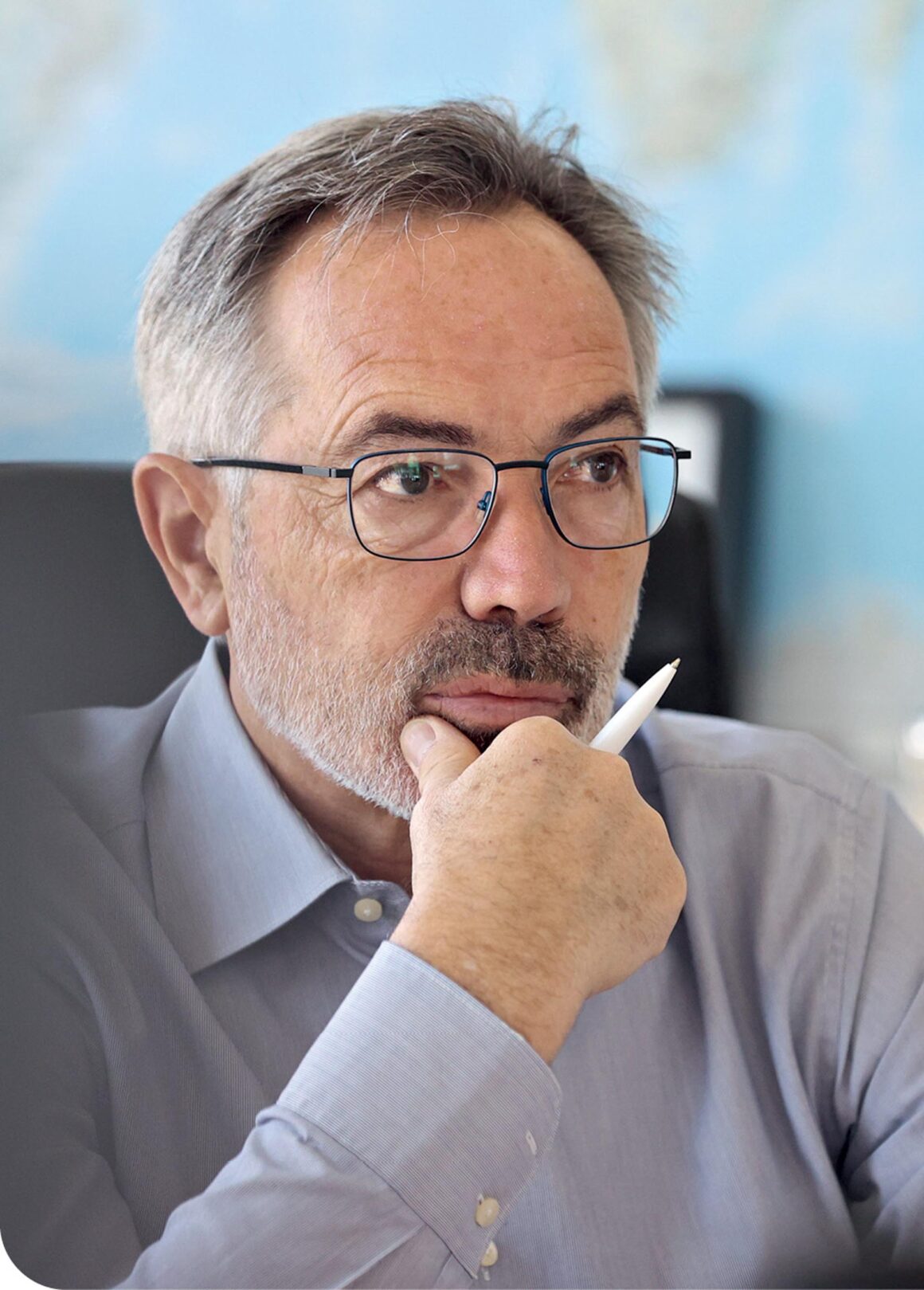
Questions for Ludger Neuwinger-Heimes, Chief Financial Officer (CFO), Freudenberg Sealing Technologies (FST).

Mr. Neuwinger-Heimes, the organization worked on the SAIL project for 16 years. What were the key challenges to overcome?
The 16-year process was a huge effort for the entire organization. It put everyone’s capabilities to the test. And everyone showed a great willingness to make changes. This willingness has become part of our DNA even beyond our IT system landscape.
First of all, stamina and perseverance were essential. The old world of Freudenberg Seals and Vibration Control Technology (FDS) – FST’s predecessor – was highly fragmented. Around the turn of the millennium, FDS was split into numerous independent legal entities as part of the Focus-2 project. This was supposed to promote an entrepreneurial spirit. Company executives had also hoped that processes would become more straightforward, faster and more market-friendly. But this hope was not realized. In some areas – for example, those involving administration – this decentralization made us less efficient and led to high costs. For example, each legal unit used its own SAP system or even a completely independent IT option, which led to all kinds of interfaces and a lack of transparency.
The global economic crisis and the subsequent recession roiled the markets and, to some extent, exposed the company to existential challenges, worsening the situation. In 2011, we merged FDS with its North American sibling, the Freudenberg-NOK General Partnership (FNGP), under the FST umbrella. The business in automotive vibration control technology was integrated into the Vibracoustic Group as well as NOK-Freudenberg China (NFC) and Dichtomatik at FST – once again, the latter with entirely different IT systems. So we were looking at many different legal entities and a range of system landscapes.
To deal with all these variations, FST decided to partially centralize tasks in 2007. One of the areas was information technology. A paradigm change was introduced with the start of the SAIL Project. Suddenly, the focus was on processes, not functions. Today, when it comes to the numbers, we have good transparency. We have a transparency that we had not thought possible. This allows us to make evidence-based decisions.
Due to the process improvements and standardization worked out during SAIL, will the integration of new facilities now take place at the push of a button?
No, integration at the push of a button never works in IT. The processes are far too complex for that. But today integration has been dramatically simplified. There is now a blueprint used as the standard. We know what we want. We have defined the processes and the internal know-how to handle the transformation into a new organization. For example, we can rapidly integrate newly acquired companies. Since the formation of Freudenberg FST GmbH, there is ideally only one legal unit per country and no longer numerous different entities. And there is just one uniform SAP system.
Three Leading Participants look back at the Sail Project:

George Molchan
Senior Vice President
Information Technology
“In 2004, I joined Freudenberg-NOK General Partnership (FNGP) as CIO. We were busy with our own ERP rollout of QAD. When FST was formed in 2011, we had completed our rollout of QAD and, for the most part, were not involved with the SAP activities in Europe under the former FDS. In 2012, I became the CIO for the global FST/FNST organization and quickly realized the tremendous scope and importance of the FST SAIL project. Three short years later, we began our SAIL journey in FNST and finished our rollouts in June 2023. Truly a humbling experience to be surrounded by so many dedicated and knowledgeable colleagues throughout this journey.”
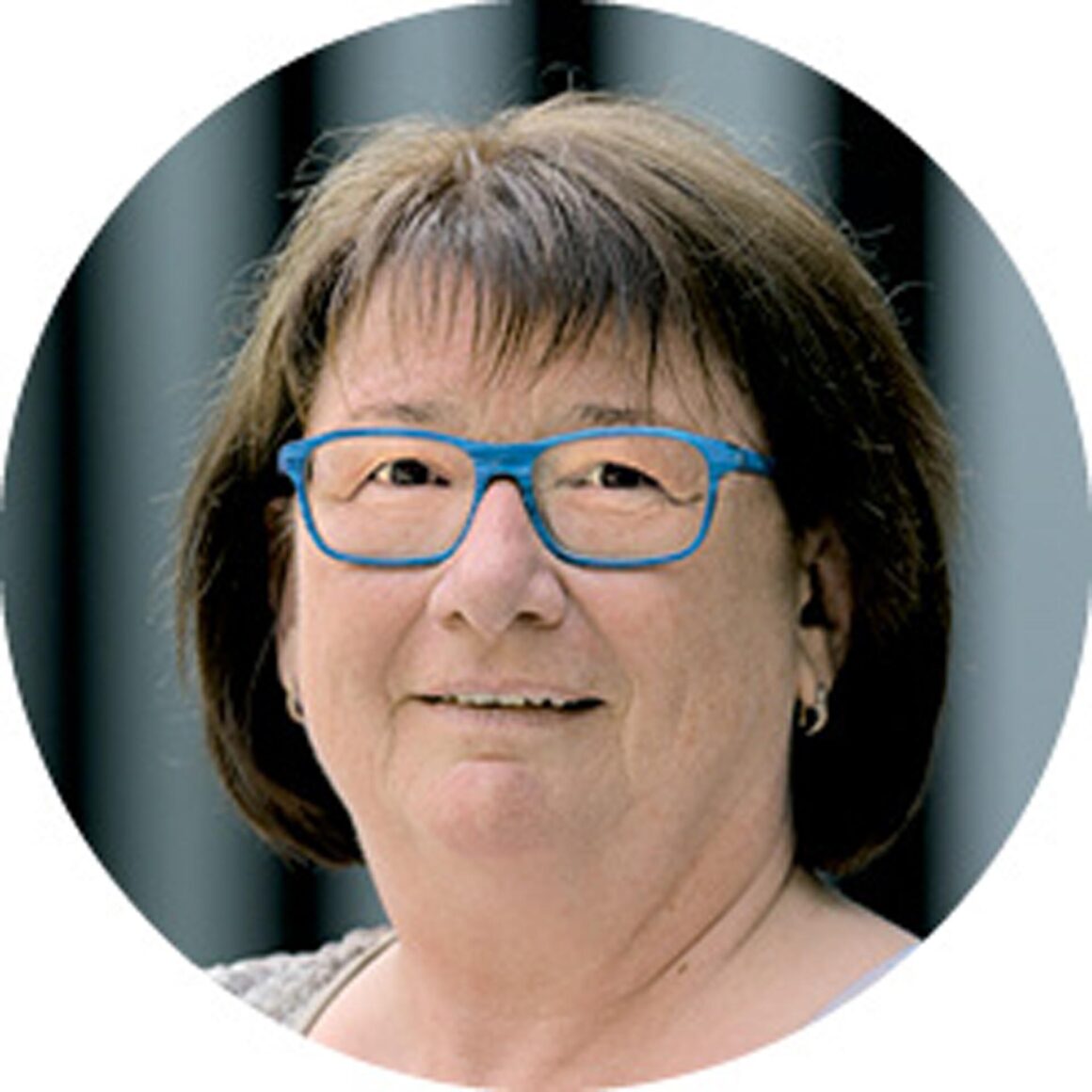
Heike Brüggemann
Vice President Business Process
and Project Management
“I felt fortunate to be able to participate in a project of SAIL’s scope right from the start. I collaborated on the creation of templates in purchasing, led special rollout projects and managed SAP support for locations. It was a wonderful experience that promoted my personal development and offered me an outstanding view of FST’s diversity. I have come to know many wonderful colleagues across the different continents and have learned to really appreciate their tremendous expertise and willingness to work as a team. I am firmly convinced that overcoming the challenges – the different working styles, special cultural features and legal requirements – has allowed us to come together as FST.”
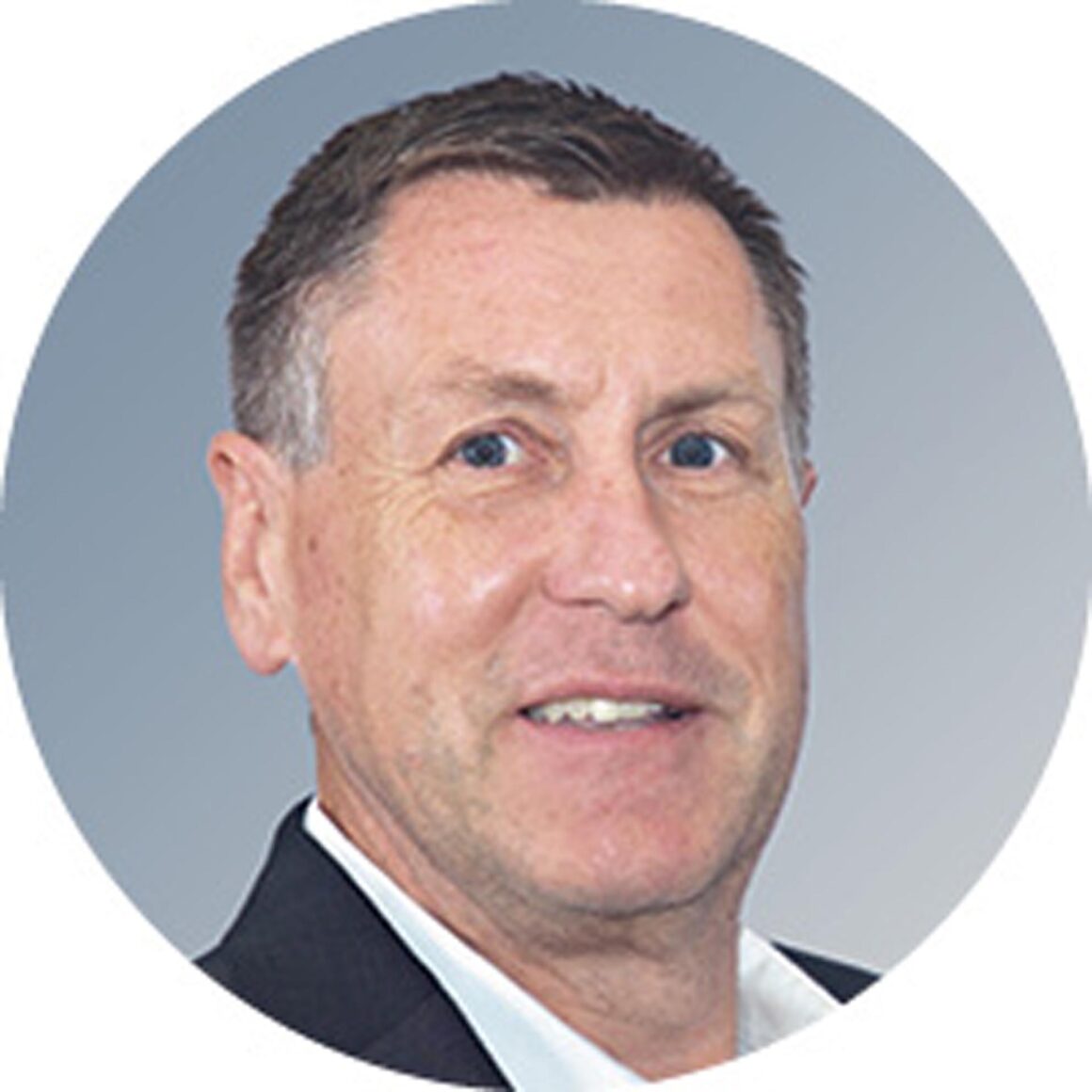
Johann Paulhuber
Vice President CPIM Enterprise & Business Platform Management
“In addition to our daily operating business, we had to carry out up to five parallel SAIL rollouts in some cases, in various regions and time zones worldwide. For example, we had to map out and implement FST-specific warehouse processes and process automation in our distribution centers – or implement other applications via interfaces as additional building blocks within particular projects. In recent years, a key challenge has been building additional capacity with flexible and above all experienced SAP specialists in the open market who could assist FST’s own experts at least temporarily.
I was on the job on day one of the SAIL program. And I can look back at countless situations, interactions, individual stories, images and impressions, not to mention constructive discussions and experiences. We had to learn to deal with different languages and special cultural features. I was especially inspired by the enormous motivation and team spirit of all the participants in the SAIL program. Another aspect could certainly fill many pages in the SAIL success story: The fact that more than 5,500 employees now use a centralized SAP system with harmonized and standardized business processes FST-wide every day.”


